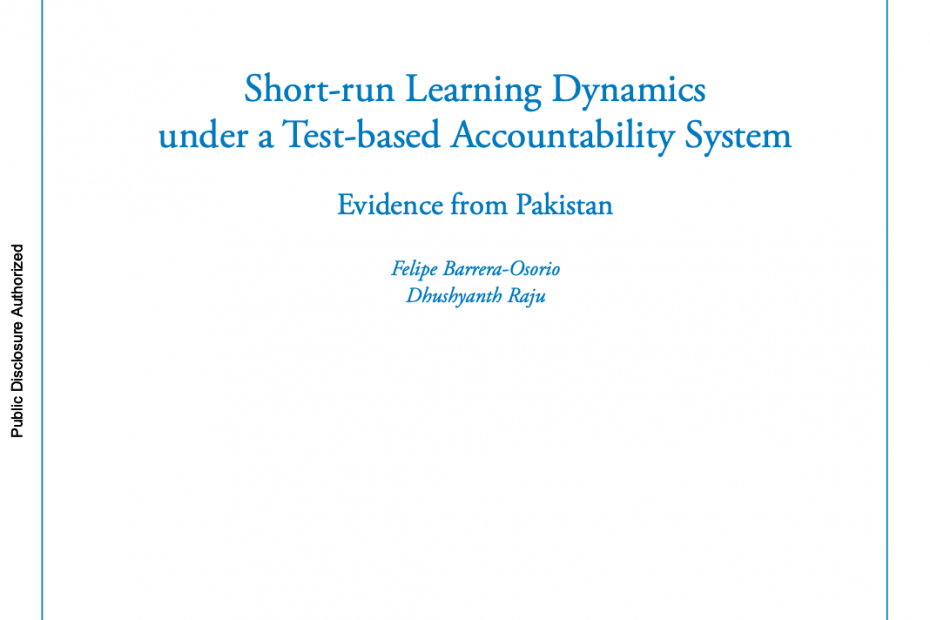
| Low student learning is a common finding in much of the developing world. This paper uses a relatively unique dataset of five semiannual rounds of standardized test data to characterize and explain the short-term changes in student learning. The data are collected as part of the quality assurance system for a public-private partnership program that offers public subsidies conditional on minimum learning levels to low-cost private schools in Pakistan. Sharp regression discontinuity estimates show that the threat of program exit on schools that barely failed the test for the first time induces large learning gains. The large change in learning between the first two test rounds is likely attributable to this accountability pressure given that a large share of new program entrants failed in the first test round. |
Author(s): Barrera-Osorio, Felipe and Raju, Dhushyanth
Year Published: 2010
Language: English
Country: Pakistan
Download: https://neqmap.bangkok.unesco.org/wp-content/uploads/2019/08/WPS5465.pdf


